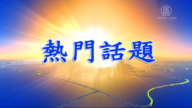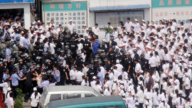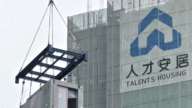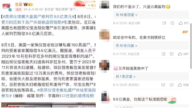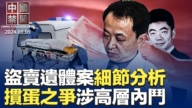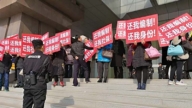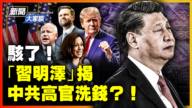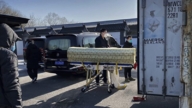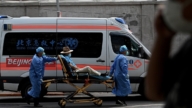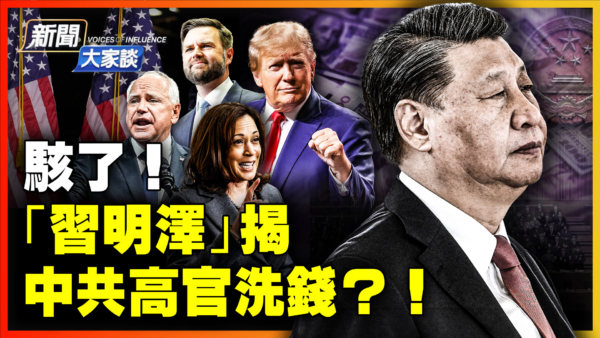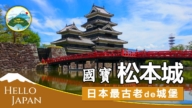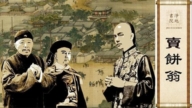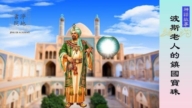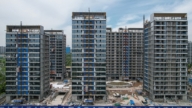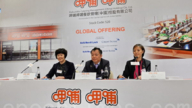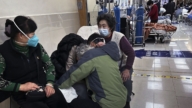【新唐人2014年10月21日訊】在中共的假普選受到港人排斥以來,中共各路媒體一直宣傳英國不曾給港人民主。不過歷史資料顯示,當年香港屬於英國的殖民地時,英國幾度嚐試讓香港民主化,卻遭到中共阻止,甚至揚言要全面入侵來阻止英國這一舉動。
香港當前的和平佔中民主運動,不斷遭到中共喉舌媒體攻擊,甚至造謠說,英國統治香港的155年,從來沒有給過香港民主,英國面對香港的民主運動堅決鎮壓。
不過,事實上,英國殖民地在英國引導下全部實現了民主,不只是有美國、加拿大、澳大利亞等成功範例,包括馬來西亞、新加坡以及巴基斯坦、印度等也都實現了民主自治。
英國外交部檔案顯示,1958年1月30號,中共總理周恩來會見英國代表團時,向英國首相麥克米倫傳話說:「中國會將任何推動香港自治的行為,視為非常不友好的舉動。中國希望香港的殖民地地位,不會有絲毫的改變。」
1960年10月29號,當時出任「華僑事務委員會」主任的廖承志,與香港工會代表訪京團聚會時,警告英方:如果英國要在香港搞民主,就會毫不猶豫解放香港。
《中國事務》總編伍凡:「 英國人撤出遠東的時候,它把民主制度留下來了,人家是有計劃要把這些殖民地建成一個民主社會,香港那個時候英國人說要建立民主制度,中共說NO,不可以,那是我的地盤,我以後來做,怕影響中國大陸的專制制度嘛。」
《美國之音》評論說,中共當局最擔心的是,香港人一旦享有民主權利,便會成為一個自治的地區,進而脫離英國獨立。而當時的香港居民中,有大批在內戰、土改時期逃離大陸的難民,和三年大飢荒時期冒死逃到香港的中國人,他們如果手中有選票,絕對不會選擇回歸到共產黨統治下的中國。
當時廖承志曾表示,中方從不承認港九新界是英國領土,但因為英國繼續管治香港,對中方有利,所以才不要求收回。
伍凡:「 為甚麼大陸不要呢,因為當時中共完全給包圍了,它唯一的出口就是香港,如果把香港收回去,它就沒有出口了,所以它做各種各樣的走私,買賣都通過香港。」
到了八十年代,中英條約即將到期屆滿,香港回歸中國成為一個現實的議題,當時香港人心開始恐慌,將回歸稱之為「九七大限」。
1982年9月,英國首相撒切爾夫人訪華。她提出中國可以收回主權,而英國人依然保留管理香港的權力。鄧小平拒絕後說,未來香港要實行的是「高度自治,港人治港」。
1984年12月,中英簽署了《中英聯合聲明》,闡明瞭「一國兩制,港人治港」的原則,保證香港的資本主義制度五十年不變。1990年4月,中共人大頒布《香港基本法》。
而在香港這方面,英國人也在加緊推動香港的民主化。1992年,彭定康接任港督,很快就推出了政治改革方案,準備在回歸之前更多地擴大直選範圍,增加港人的民主權利。
美國海軍學院的歷史學教授余茂春:「民主是究竟是為了甚麼,在英國統治之下,香港是沒有民主的,但是它有自由,有人權,有法制,現在中共它基本上不講兩制了,甚麼都要按照中國大陸那個權利來,民主的問題實際上就變得非常的突出。香港老百姓對中共失去了信心,一國兩制,回歸祖國,都沒有太大意義了。」
當時對於彭定康見縫插針地引入多項民主改革措施的政改,讓中共大為惱火。時任港澳辦主任的魯平,甚至大罵彭定康為中共的「千古罪人」。
採訪編輯/劉惠 後製/葛雷
Why Did CCP Stop Britain’s Push for Hong Kong Democracy?
Since the fake universal suffrage in Hong Kong was rejected,
the Chinese Communist Party’s (CCP) mouthpiece media
claimed that Britain never granted democracy to Hong Kong.
Historical data shows however, that the CCP had blocked
Hong Kong’s democratization by the British several times,
and even threatened to invade in full-scale to stop Britain
pushing forward with realizing democracy in Hong Kong.
The Occupy Central has been constantly attacked
by the CCP regime’s media.
There are even rumors that in the 155 years of British rule,
Hong Kong had never been free, and that the democracy
movement had been resolutely repressed by Britain.
Yet, all of Britain’s colonies have achieved full democracy
under the country’s rule, such as the United States, Canada,
Australia, Malaysia, Singapore, Pakistan, and India.
Declassified archives show the message relayed to the British
Prime Minister Harold Macmillan by the British delegation
conversation with premier Zhou Enlai on Jan. 30, 1958,
in which Zhou said, “China would regard any move towards
Dominion status as a very unfriendly act."
“China wishes the present colonial status of Hong Kong
to continue with no change whatever."
In 1960, Liao Chengzhi, China’s director of overseas Chinese
affairs told Hong Kong union representatives that China’s
leaders would “not hesitate to take positive action to have
Hong Kong, Kowloon and the New Territories liberated,"
if the British allowed self-governance.
China Affairs editor in chief, Chris Wu: “Britain left the system
of democracy in the colonies when they withdrew from
the Far East."
“The CCP said no to the democratization of Hong Kong
for fear of jeopardizing the autocracy of the mainland."
Voice of America commented that, what worried
the communist regime the most was that the democratic
rights of people will turn Hong Kong into an autonomous
region that’s independent from Britain.
Among the Hong Kongers, many of them were refugees
from the civil war, land reform period and the three-year Great
Famine; should they be entitled with votes, they will never
choose to return to the communist regime.
Liao Chengzhi had also said at the time that the CCP “never
recognized Hong Kong, Kowloon and the New Territories
as British territory, but the present status of Hong Kong
is to our benefit."
Chris Wu: “The CCP did not want Hong Kong, because it was
completely surrounded; Hong Kong was its only outlet."
“The returning of Hong Kong at that time meant the loss of
outlet for smuggling and trading through Hong Kong."
In the 1980s when the Treaty of Nanking was about to expire,
the return of Hong Kong became a reality issue.
The panicking Hong Kongers called it “the 97 deadline".
In September of 1982, Prime Minister Margaret Thatcher
visited China and proposed to return its sovereignty,
while the Brits remained the ruling power in Hong Kong.
But Deng Xiaoping rejected and claimed that Hong Kong
will become highly autonomous and self-ruling.
In December 1984, the Joint Declaration clarified the
“one country, two systems" principle to ensure Hong Kong’s
capitalist system for 50 years.
In April 1990, the CCP National People’s Congress
promulgated “Hong Kong’s Basic Law."
Britain also stepped up democratization in Hong Kong in 1992
with Governor Chris Patten quickly launching political reform
with hopes to expand the scope of elections and democratic
rights in Hong Kong before the reunification.
Yu Maochun, Prof. of Modern China and Military History,
US Naval Academy: “What is democracy? Under British rule,
Hong Kong had no democracy, but it did have freedom,
human rights, and rule of law."
“When the CCP disregarded the two systems and everything
had to follow the mainland, democracy became prominent."
“The Hong Kong people have lost confidence in the CCP;
the so-called ‘one country, two systems’ and the ‘return to
the motherland’, don’t make much sense now."
As for the democratic reform measures introduced by Patten,
the CCP was furious.
Lu Ping, then Director of the Hong Kong and Macau Affairs
Office of the State Council said that “Patten is a ‘sinner'"
Interview & edit/LiuHui post-production/GeLei


